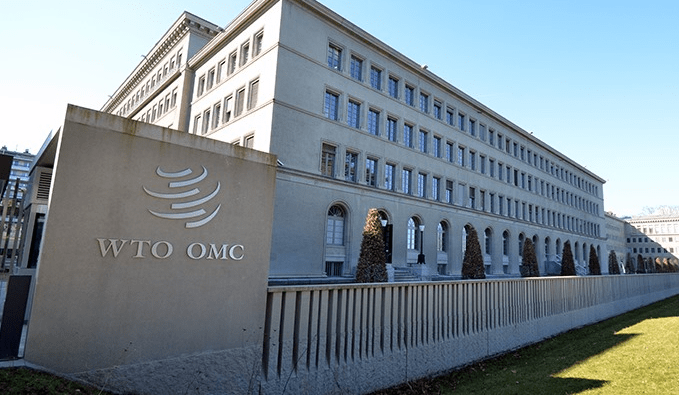Britain’s latest trade agreement with the United States is raising eyebrows across Europe and beyond, with critics warning it could breach World Trade Organization (WTO) rules – and risk undermining the UK’s recently renewed ties with the EU.
Earlier this month, London and Washington reached a pact that lowers tariffs on UK steel and automotive exports while expanding access for US beef producers. The agreement also hinted at future cooperation in areas such as pharmaceuticals.
But the deal has triggered a sharp response from trade experts and EU officials, who question whether it aligns with WTO obligations.
At the heart of the criticism lies the WTO’s Most Favoured Nation (MFN) rule. Under this principle, any preferential treatment granted to one trading partner must be extended to all others — unless it’s part of a full free-trade agreement. Britain’s new arrangement with the US doesn’t meet that bar.
The timing couldn’t be more awkward. The UK had just completed a high-profile trade reset with the European Union, aiming to mend post-Brexit economic ties.
Speaking before the European Parliament last week, Matthias Jørgensen, the European Commission’s lead on US trade relations, was cautious but clear: “The devil is in the detail.”
He continued: “We would be very vigilant to ensure that the agreement we have with the U.K. is fully respected and also that the U.K. has respected its WTO commitments.”
Concerns are particularly centred on tariff-rate quotas (TRQs) — mechanisms that allow a set volume of goods to enter at reduced or zero tariffs, after which higher duties apply.
The revised UK-US deal alters two key quotas:
- Up to 13,000 metric tons of American beef can now enter the UK tariff-free.
- A 19% tariff on US ethanol is being replaced with a zero-tariff quota for 1.4 billion litres.
That shift is raising alarms in Brussels. “We have a bit of worries in that regard,” Jørgensen added. “Who’s paying for that? Who is getting less access to the U.K. market if the U.S. gets more?”
Concerns are also mounting at home. During a House of Lords committee session on Wednesday, several trade experts highlighted the risk of WTO non-compliance.
Michael Gasiorek, a professor of economics at the University of Sussex, warned: “There are elements [of the deal] which are clearly WTO incompatible, such as the announced changes in tariffs.”
He added that while past infractions in other countries’ dealings with the US weren’t uncommon, this new agreement posed significant risks if expanded further: “It would be a serious error on the part of the U.K. government.”
Dmitry Grozoubinski, founder of the consultancy ExplainTrade, noted that the beef quota appeared to be a “new preferential quota for the U.S.” and said the deal might breach WTO rules “a little bit.”
Liam Byrne, Chair of the Business and Trade Committee in the Commons, urged a more collaborative stance with Brussels: “The government should collaborate with the EU to uphold their shared ambition to safeguard international trade globally.”
The committee has pushed for Britain to join the WTO’s alternative dispute resolution system, known as the MPIA (Multi-Party Interim Appeal Arbitration Arrangement).
This system allows countries to resolve trade disputes even as the main WTO Appellate Body remains paralysed — a deadlock caused by the US blocking judicial appointments since 2017.
Notably, the UK is not currently a member of the MPIA, despite the EU, Canada, Australia, and China all signing on.
Two sources close to the WTO suggest that Britain is reluctant to join the MPIA out of concern it might antagonise Washington. The previous UK administration had reportedly resisted joining what was viewed as a Brussels-led initiative.
However, momentum appears to be shifting. Trade Secretary Jonathan Reynolds has signalled that the UK “should be looking to take forward” efforts to reinforce the WTO’s role.
Meanwhile, UK Ambassador to the WTO Simon Manley confirmed that joining the alternative dispute system is now “under active consideration.”
A spokesperson for the Department for Business and Trade echoed this stance, stating: “We are strong supporters of the WTO, which plays a vital role in providing stability and predictability for businesses and consumers around the world.
This is the first step towards a legally binding Economic Prosperity Deal with the US, with further talks planned to build on what we have already agreed.”
The UK finds itself in a delicate balancing act. Keen to court Washington, but under pressure to play by Geneva’s rules. As talks with the US continue and scrutiny from Brussels sharpens, all eyes will be on how Britain navigates this diplomatic and economic tightrope.






